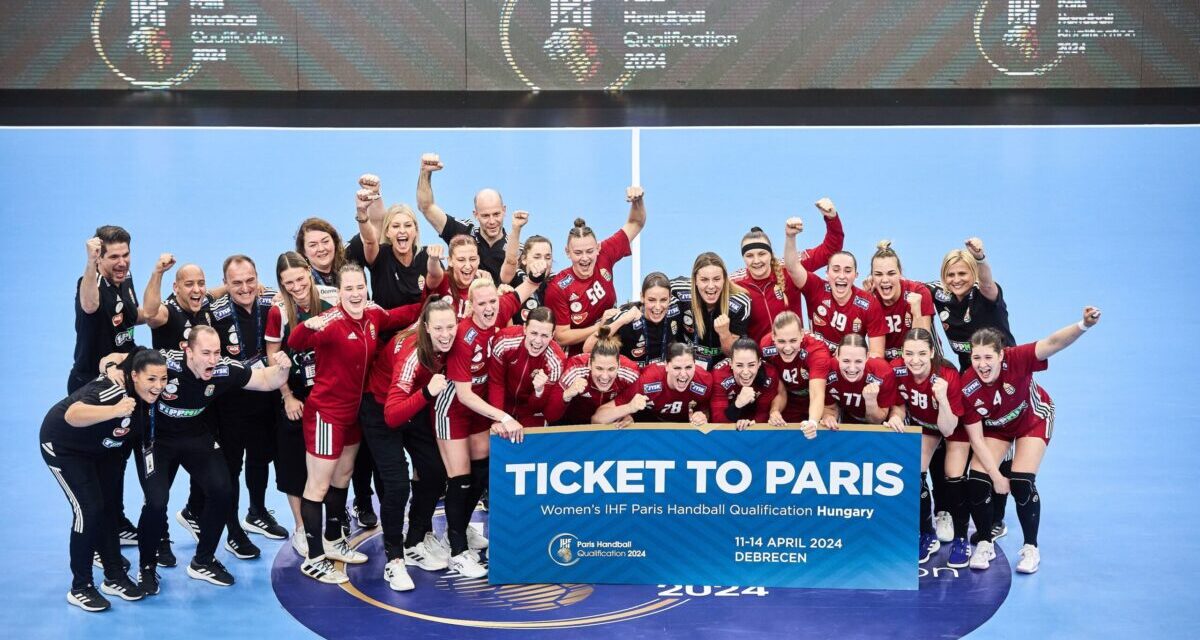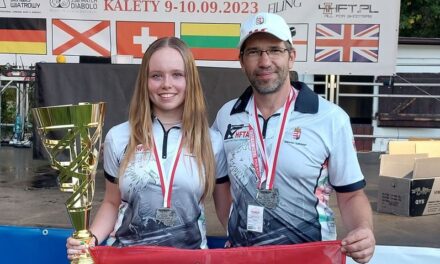The Hungarian women's handball team earned a quota for the five-hoop games in Paris after defeating Japan 37-28 in the final match of the qualifying tournament in Debrecen on Sunday, thus finishing at the top of the table with a flawless performance.
The other foursome's flight ticket to Paris was obtained by the Swedish national team, which placed fourth in the world championship. The groups of five will be drawn on Tuesday from 17:30 in the French capital.
The team of national team captain Vladimir Golovin took to the field in the Phoenix Arena knowing that they would not get an Olympic quota if they lost by more than four goals. The national team has defeated its Asian rival without exception in their 18 matches against each other, most recently in March 2019 in a friendly match in Siófok by 33-21.
The Far Easterners arrived earlier to warm up - amid typical shouts - and the hall naturally exploded when the Hungarian team arrived on the field, greeted by giant molinos with the inscription "endurance, determination".
At the meeting, the Argentinian referees blew the whistle, who also played in last year's World Cup match against the Croatians, which brought a dramatic final game, winning which enabled the Hungarian national team to participate in the qualifying tournament.
This time, goalkeeper Zsófia Szemerey, right winger Dorottya Faluvégi, and shot putter Gréta Juhász, who missed the previous two matches, were left out of the home team's squad. Kisvárda's Japanese right winger Natsumi Akiyama did not get a chance.
The defense of the Hungarian seven-meter and Blanka Böde-Bíró, who fought and sold, set the tone, but at the beginning of the match, there were many errors in attack on both sides and few goals were scored. After ten minutes, Japan attacked with superior numbers, but the Hungarian defense resisted the attacks despite the unceasing encouragement of the audience. After a quarter of an hour, the national team led 9-4, and the rival asked for a second time-out, but this didn't faze the hosts either: the key players in the starting lineup performed well, the empty-net goals came after possessions, Böde-Bíró excelled in goal, so
not long before the break, there were already nine goals between them (17-8), and in the end, the sides could retire with a seven-goal difference.
In the past period, the team usually had a not very strong period in the first ten minutes of the second half, and this time the team returned from the dressing room with many mistakes, while the referees expelled Mika Nagata from the Japanese team with a red card for elbowing. Led by Katrin Klujber and Viktória Győri-Lukács, despite the inaccuracies, a ten-goal difference (23-13) was established in the 41st minute.
At the start, Golovin made an almost complete line-up change, giving all his players a chance, and although the islanders were temporarily able to make up a little from their lag against the fresh forces, the confident Hungarian success was not in danger.
In the last minute, it was rightly said from the audience: "It was nice, girls!"
The best and most successful player of the match was Katrin Klujber with 11 goals, Viktória Győri-Lukács scored six times, team captain Böde-Bíró saved ten, and Janurik Kinga saved three Japanese attempts.
After 1976, 1980 and 2004, it is the fourth time that both the Hungarian men's and women's handball teams are Olympic participants. The men bought their plane tickets to Paris in Tatabánya in March.
The women will be members of the field of the five-hoop tournament for the eighth time, their best result is the silver medal in 2000, last time they finished in seventh place at the Tokyo Games, saying goodbye in the quarter-finals.
Field for the women's handball tournament of the Paris Olympics: France (director, world champion), Denmark, Republic of Korea, Angola, Brazil, Norway, HUNGARY, Sweden, Netherlands, Spain, Germany, Slovenia
MTI
Cover image: The Hungarian team celebrates at the end of the match between Hungary and Japan in the 3rd round of the women's handball Olympic qualifying tournament at the Főnix Arena in Debrecen on April 14, 2024.
Source: MTI/István Derencsényi













